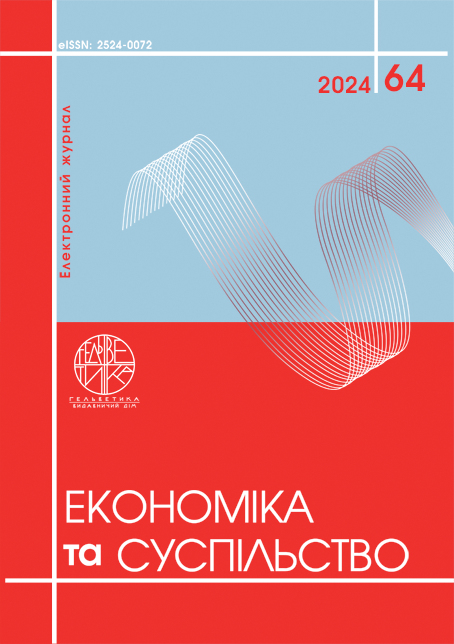FACTORS OF TAX AGGRESSIVENESS: STUDY CASES IN INDONESIA
Abstract
Tax aggressiveness is not new to the public, it is one of the ways taxpayers can use tax avoidance to reduce the amount of their tax payments to the government, especially in Indonesia. Income received by companies listed on the stock exchange makes the company’s decision-holders reluctant to pay real taxes, using the company’s debt interest to reduce the amount of taxes, and oversight by institutional ownership. 19 companies obtained purposive samples in 3 years—data research from 2019 to 2021—or as many as 57 financial statement data came from the Indonesia Stock Exchange. The result was debt to assets ratio, return on assets and institutional ownership have effect on tax aggressiveness, and institutional ownership was not influenced by tax aggressiveness. Meanwhile, the independent commissioner was able to moderate the influence of institutional ownership on tax aggressiveness, on the other side, the independent commissioner was unable to moderate the influence of debt to assets ratio and return on assets on tax aggressiveness.
References
Andhani, D, (2019). “Pengaruh Debt to Total Asset Ratio (DAR) dan Debt to Equity Ratio (DER) Terhadap Net Profit Margin (NPM) Serta Dampaknya Terhadap Harga Saham pada Perusahaan Elektronik di Bursa Efek Tokyo tahun 2007-2016.” JURNAL SEKURITAS (Saham, Ekonomi, Keuangan dan Investasi), 3(1), 45-64. 10.32493/skt.v3i1.3262
Arianti, B. F, (2020). “The Effect of Independent Commissioner’s Moderation of CSR and Institutional Ownership on Tax Avoidance.” Journal of Accounting and Business Education, 4(2), 98-110. http://dx.doi.org/10.26675/jabe.v4i2.8271
Chandra, D. S, (2021). “Pengaruh Debt to Assets Ratio, Return On Assets, Earning Per Share Terhadap Harga Saham Pada Perusahaan Farmasi yang terdaftar di Bursa Efek Indonsia Periode 2015-2019.” Jurnal Akuntansi dan Keuangan Kontemporer 4(1), 99-108. https://doi.org/10.30596/jakk.v3i1
Dewi, N. M. A. T., & Widanaputra, A. A. G. P., (2021). “Kepemilikan Manajerial, Kepemilikan Institusional dan Kebijakan Dividen serta Free Cash Flow sebagai Pemoderasi”. E-Jurnal Akuntansi, 31(7), 1710-1719. https://doi.org/10.24843/EJA.2021.v31.i07.p08
Fitriana, A., & Nurul Aisyah Rachmawati, (2021). “The Effect of Financial Constraints and Institutional Ownership on Tax Aggressiveness.” ACCRUALS: Accounting Research Journal of Sutaatmadja, 5(1), 38-53. https://doi.org/10.35310/accruals.v5i01.606
Hidayat, A. T. & Eta Febriana Fitria., (2018). “Pengaruh Capital Intensity, Profitabilitas, dan Leverage Terhadap Agresivitas Pajak.” EKSIS: Jurnal Riset Ekonomi dan Bisnis, 13(2), 157-168. https://doi.org/10.26533/eksis.v13i2.289
Kariyoto, (2017). Analisa Laporan Keuangan. Malang: UB Press
Kurniati, D, (2021). Penerimaan Pajak Minus 19,7% ini Data Lengkapnya. DDTC News. https://news.ddtc.co.id/penerimaan-pajak-2020-minus-197-ini-data-lengkapnya-26766
Kurniawati, E., (2019). “Pengaruh Corporate Social Responsibility, Likuiditas, dan Leverage Terhadap Agresivitas Pajak.” Profita: Komunikasi Ilmiah Akuntansi dan Perpajakan, 12(3), 408-419. https://dx.doi.org/10.22441/profita.2019.v12.03.004
Jaya, E. P., & Randy Kuswanto, (2021). “Pengaruh Return on Assets, Debt to Equity Ratio dan Price to Book Value terhadap Return Saham Perusahaan LQ45 Terdaftar di Bursa Efek Indonedia Periode 2016-2018.” Jurnal Bina Akuntansi 8(1),51-67. https://doi.org/10.52859/jba.v8i1
Maharani, F. S & Niswah Baroroh. 2019. “The Effect OF Leverage, Executive Characters, and Institutional Ownership to Tax Avoidance With Political Connection as Moderation” dalam Accounting Analysis Journal Volume. 8(2), 81-87. https://doi.org/10.15294/aaj.v8i2.30039
Nurhayati, N., et al., (2019). “The Effect of Financial Policy on Tax Aggressiveness for Manufacturing Companies Listed at Indonesia Stock Exchange.” The Electronis Scientific Edition on Economics: Modern Economics, 13, 180-186. https://doi.org/10.31521/modecon.V13(2019)-28
Pajrina, R et al., (2021). “Pengaruh Karakteristik Eksekutif dan Kepemilikan Institusional terhadap tax Avoidance dengan Corporate Governance sebagai Variabel Moderating.” Jurnal Indonesia Sosial Sains, 2(9), 1541–1557. https://doi.org/10.59141/jiss.v2i09.415
Prakosa, I. B. & Gunasti Hudiwinarsih, (2018). “Analysis of Variables That Effect Tax Avoidance in Banking Sector Companies in Southeast Asia.” The Indonesian Accounting Review, 8(1), 109-120. http://dx.doi.org/10.14414/tiar.v8i1.1535
Puspita, T., et al., (2020). “The Effect of Committees Under the Board of Commissioners, Profitability and Inventory Intensity on Tax Aggressiveness.” Accounting and Finance, 1, 114-122. http://dx.doi.org/10.33146/2307-9878-2020-1(87)-114-122
Supandi, S., et al., (2022). “Pengaruh financial distress, manajemen laba riil dan profitabilitas pada tax aggressiveness dengan komite audit sebagai variabel pemoderasi.” Fair Value: Jurnal Ilmiah Akuntansi dan Keuangan, 5(3), 1423-1432. https://doi.org/10.32670/fairvalue.v5i3.2464
Toni, N., et al., (2022). Praktik Perataan Laba (Income Smoothing) Perusahaan : Strategi Peningkatan Profitabilitas, Financial Leverage, dan Kebijakan Dividen Bagi Perusahaan. Indramayu: Penerbit Adab
Widayanti, N. C & Theresia Woro Damayanti., (2022). “Pertumbuhan Penjualan, Financial Distress, Preferensi Resiko: Apakah Masa Pandemi Covid-19 Berperan?” Jurnal Akuntansi Kontemporer (JAKO), 14 (3), hlm. 127-150. https://doi.org/10.33508/jako.v14i3.3646
Yuan et al., (2022). Does corporate donation lead to more tax aggressiveness? China Economic Quarterly International, 2(1), 29-41. https://doi.org/10.1016/j.ceqi.2022.02.002
#UangKita Tahun 2021. Visual Kemenkeu. https://visual.kemenkeu.go.id/apbn-2021

This work is licensed under a Creative Commons Attribution 4.0 International License.


